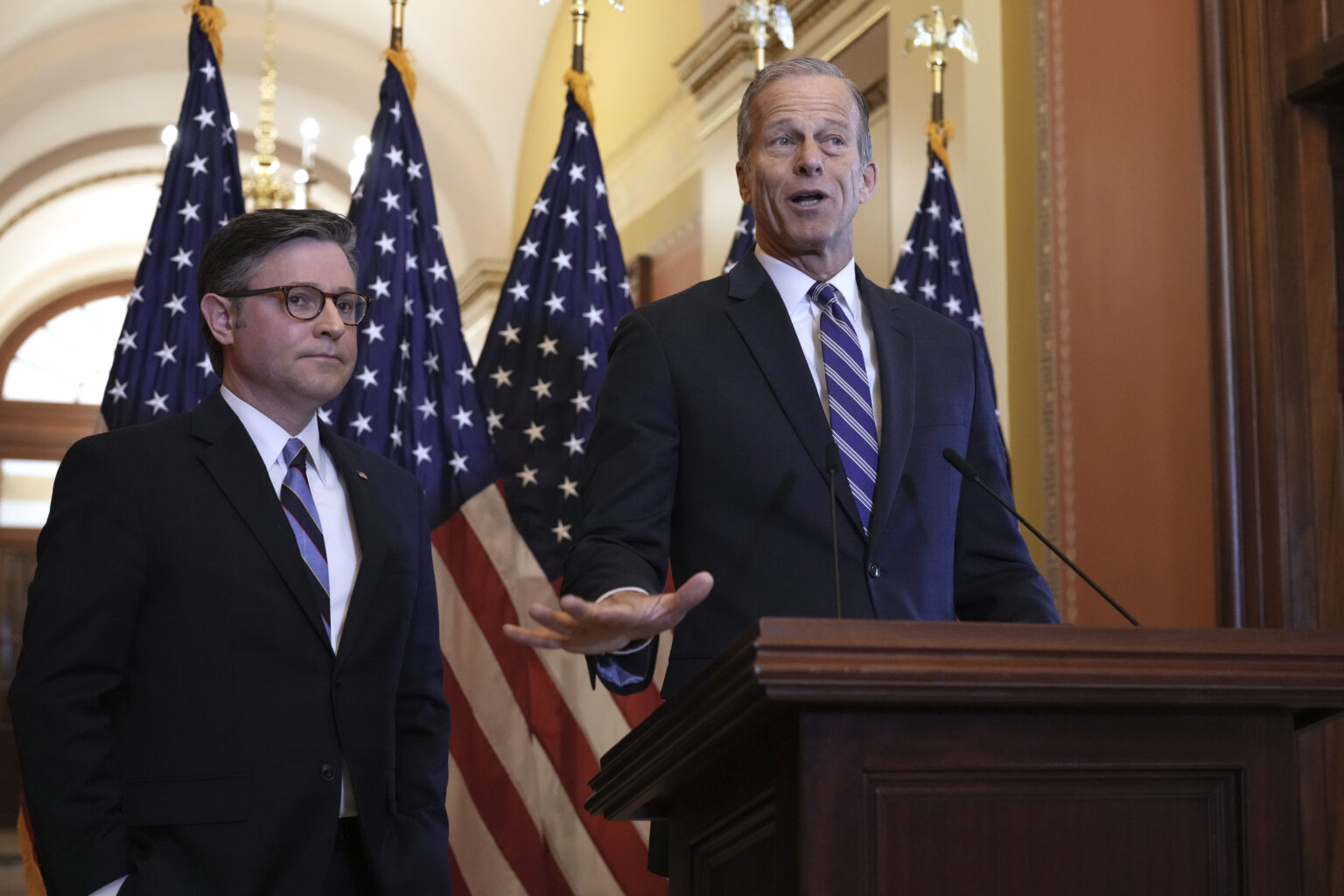Congressional Reactions to U.S. Strikes on Iran: A Spectrum of Support and Opposition
The decision by President Donald Trump to authorize military strikes against Iran on Saturday has sparked a divided response within Congress, reflecting deep partisan divides and contrasting perspectives on U.S. foreign policy. While some leaders have expressed support, others have voiced concern or outright opposition, highlighting the ongoing debate over presidential war powers and diplomatic strategies.
Republican Endorsements Emphasize Strength and Deterrence
Leading Republican figures, including House Speaker Mike Johnson and Senate Majority Leader John Thune, swiftly commended the president’s decisive action. Johnson underscored the importance of demonstrating strength, stating that Trump’s military response should serve as a stark warning to both allies and adversaries that U.S. commitments are unwavering. “This strike underscores that President Trump’s stance against a nuclear-armed Iran remains firm and resolute,” Johnson remarked.
Similarly, Thune attributed the escalation to Iran’s aggressive posture, asserting that diplomatic efforts had failed. “Iran’s regime, which openly threatens America and seeks to eliminate Israel, has rejected all peaceful negotiations,” Thune explained. Both leaders had been briefed prior to the operation, according to sources familiar with the classified discussions, emphasizing the strategic planning behind the decision.
Contrasting Views from the Conservative Base and Critics
Despite the official Republican support, notable voices within Trump’s conservative base have expressed skepticism or opposition. Figures such as Stephen K. Bannon, former adviser to Trump, and Tucker Carlson, a prominent media personality, have questioned the wisdom of U.S. involvement in the Middle East conflict. Rep. Marjorie Taylor Greene (R-Georgia) took to social media to emphasize her stance, stating, “Israel is a nuclear-armed nation. This is not our fight. Peace should be the goal.”
Some Republican lawmakers have also publicly challenged the legality and constitutionality of the military action. Reps. Thomas Massie (R-Kentucky) and Warren Davidson (R-Ohio) voiced concerns about the unilateral nature of the strikes. Massie, a vocal critic of military interventions, posted on X (formerly Twitter), “This action is unconstitutional.” He previously co-sponsored legislation reaffirming Congress’s exclusive authority to declare war, emphasizing the importance of congressional oversight in military decisions.
Public Sentiment and Constitutional Concerns
Public opinion has been largely cautious regarding military escalation in the Middle East. A recent poll conducted by The Washington Post before the strikes indicated that Americans oppose airstrikes against Iran by a margin of 20 percentage points-45% against, 25% in favor. This sentiment underscores widespread wariness about further U.S. involvement in regional conflicts.
Within Congress, Democrats have predominantly criticized the president’s decision to proceed without explicit congressional approval. According to the U.S. Constitution, only Congress holds the power to declare war, a principle that many lawmakers believe has been sidestepped. Senate Minority Leader Charles E. Schumer (D-New York) called for the enforcement of the War Powers Act, urging Senate leaders to bring the measure to a vote immediately to reaffirm congressional authority.
Calls for Congressional Accountability and Strategic Clarity
Schumer emphasized the need for accountability, stating, “No president should unilaterally commit the nation to war without congressional approval.” He highlighted the importance of strategic clarity in confronting Iran’s alleged “campaign of terror,” asserting that the executive branch must be held accountable for military actions.
Senator Tim Kaine (D-Virginia), a member of both the Armed Services and Foreign Relations Committees, announced plans to push for a Senate vote on the issue. He criticized the administration’s approach, questioning the rationale behind the strikes and pointing to recent Israeli military actions that reportedly set back Iran’s nuclear program by several years. “The American people oppose entering another Middle East war,” Kaine remarked, emphasizing the need for congressional oversight.
Veterans and Wariness of Endless Conflicts
Former Marine and Senator Ruben Gallego (D-Arizona) voiced strong opposition, warning against being dragged into another protracted conflict. “Having served in Iraq, I’ve seen firsthand the devastating toll of unnecessary wars,” Gallego stated. “We must learn from past mistakes and avoid repeating them.” His comments reflect a broader concern about the cycle of endless Middle Eastern conflicts that have cost American lives and resources.
Support from Some Democrats and the Call for Strategic Action
Amidst the criticism, some Democratic senators expressed support for Trump’s military decision. Senator John Fetterman (D-Pennsylvania) praised the strikes, asserting, “Iran’s role as a global sponsor of terrorism makes this a necessary step. Our military is the best in the world, and I stand behind their actions.” His stance underscores the complex and often divided views within the Democratic Party regarding military intervention and national security.
As tensions in the Middle East continue to escalate, the debate over presidential war powers, congressional oversight, and the path toward peace remains at the forefront of U.S. political discourse. The coming weeks will likely see renewed discussions on the constitutional authority to engage in military conflict and the strategic objectives guiding U.S. foreign policy in this volatile region.

